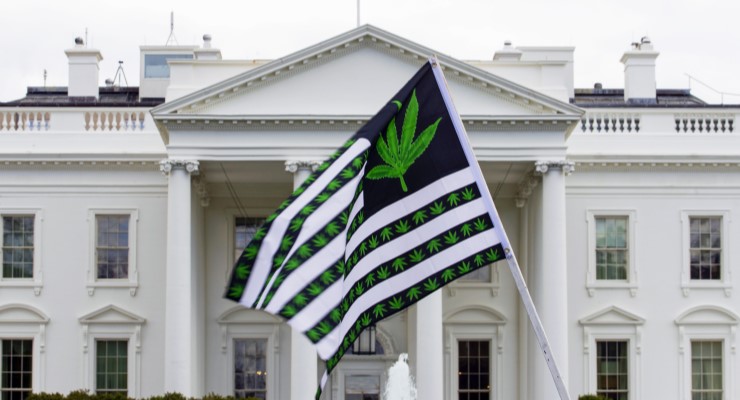
US President Joe Biden has pardoned thousands of Americans with federal cannabis convictions, reigniting the debate around whether Australia should do the same for its citizens — or go a step further and decriminalise the drug altogether.
It comes a week after the Greens launched a campaign to legalise cannabis nationally.
“This is really exciting from an Australian perspective because it shows how important action by the federal government is when it comes to cannabis law reform,” Greens Senator David Shoebridge told Crikey. “This answers those few critics who have been saying it’s not the job of the federal government to advance federal law reform. Look across the pond at the US.”
More than 40% of illicit drug arrests in Australia are for cannabis. Of the 166,321 arrests across 2019 and 2020, 76,669 were for weed — an increase of 8% from the year prior. The number of national illicit drug arrests increased 96% over the past decade. But 88% of all drug arrests are for consumer quantities, and that statistic is even higher for marijuana — 91% of national cannabis arrests are for low-level quantities.
Although most charges and convictions for cannabis possession in Australia (like the US) are not federal, Shoebridge says the Greens are considering whether there is legislative capacity for past state convictions to be overturned by federal bodies.
“Either way, once we legalise cannabis federally, it’s a political inevitability that the states follow,” he said.
Advocacy group Sisters Inside CEO Debbie Kilroy says this is a “great step forward” to begin the process of decriminalising cannabis possession — and drugs more broadly — in Australia.
“The time has come to stop the criminalisation of low-level drugs,” she said. “Here in Australia we must follow so that anybody with a possession conviction is pardoned and released from prison.”
The impact on the “huge number” of Australians charged, arrested and convicted with simple cannabis possession every year is “very detrimental”, said veteran drug law reform advocate Dr Alex Wodak, citing research comparing institutional responses to cannabis convictions in Western Australia and South Australia. WA’s “punitive” approach was far more damaging than SA’s “slap on the wrist”.
“There was no difference in subsequent cannabis use, but WA people were more likely to have broken up with a significant relationship, lost accommodation, lost a job, and to just feel pissed off, angry and alienated,” Wodak said.
So can America’s move supercharge Australia’s movement to decriminalise marijuana?
Cannabis consultant Rhys Cohen is confident the announcement will help fast-track Australian progress.
“The US runs the world when it comes to drug policy and has done for decades,” he said. “Where the US goes, the rest of the world is certain to follow. The whole presidential pardon of federal offences is a very American phenomenon. It’s symbolic but symbols are really important.”








A reform that is long, long overdue. How many people out there, even National Party voters, would stridently object to this?
The WA Labor Party, and the Liberal party’s surviving rump, are full of serious wowsers and, to some extent, clients of the WA Police. The impacts of prohibition in WA, as shown in the figures cited in the article, will be seen here in WA as evidence of success. Mr McGowan will have about as much tolerance for the idea of decriminalisation of marijuana as he has for a weekend with Clive – absolutely none. Drug policy in WA is determined by the Police and their vested interests. Patronage, not politics, determines public drug policy. I have little doubt that WA will be the last bastion of marijuana prohibition and heavy-handed policing in the English-speaking world, regardless of anything our American overlords might do.
Some states if not all have over the top punishments, politics catering to older generations, which can ruin people’s careers and lives if charged and found guilty on possessing or using cannabis e.g. teachers (often the spouse takes the wrap), but no issue with ongoing alcoholism and treatment?
Further, Australia does not need to look to the US, why? On our doorstep Thailand is in the midst of formalising and normalising with various constraints e.g. any smoking in public (inc. nicotine) is being constrained, but what one does in a private space is their own business; very libertarian but same in Oz want to be illegal?
ABC had article yesterday (misleadingly) titled ”It’s like the new Amsterdam’: The rush to cash in on Thailand’s hazy cannabis laws’; no street issues like Amsterdam and e.g. police liaise with those selling and make suggestions, neither charges nor criminalisation.
Not on topic but seems a good opportunity in this precedent for Biden to announce Presidential pardons for anyone convicted under new, or old, abortion laws.
Recommend ‘Background Briefing’ on RN Sunday morning 8am, 11pm and repeated during the week for the push to legalise.